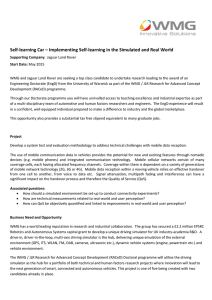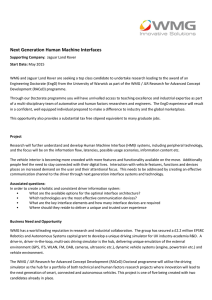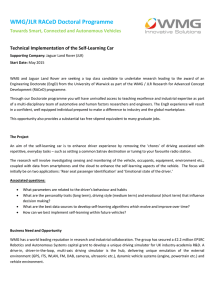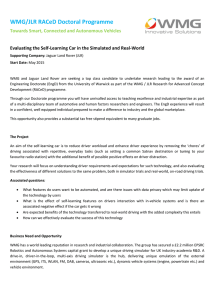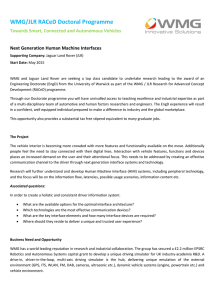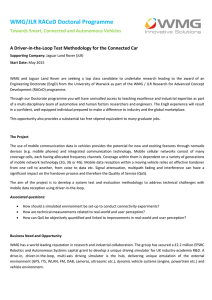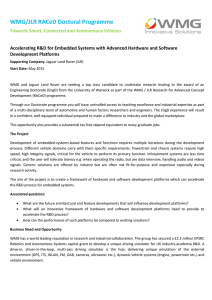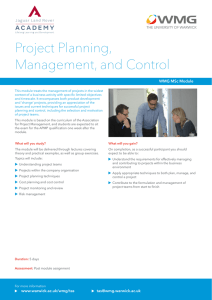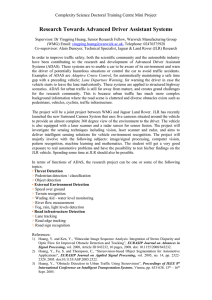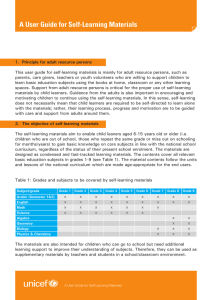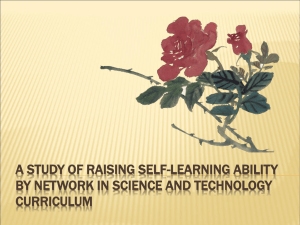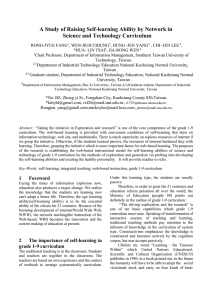Self-learning Car – Implementing Self-learning in the Simulated and Real... Reducing Driver Workload
advertisement
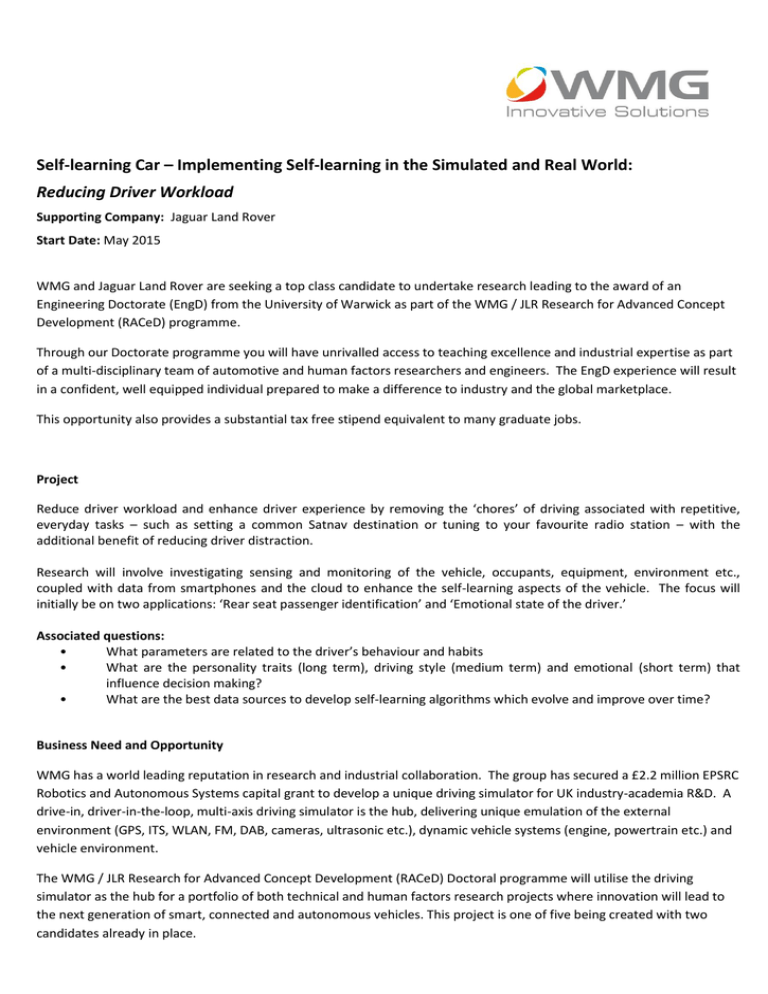
Self-learning Car – Implementing Self-learning in the Simulated and Real World: Reducing Driver Workload Supporting Company: Jaguar Land Rover Start Date: May 2015 WMG and Jaguar Land Rover are seeking a top class candidate to undertake research leading to the award of an Engineering Doctorate (EngD) from the University of Warwick as part of the WMG / JLR Research for Advanced Concept Development (RACeD) programme. Through our Doctorate programme you will have unrivalled access to teaching excellence and industrial expertise as part of a multi-disciplinary team of automotive and human factors researchers and engineers. The EngD experience will result in a confident, well equipped individual prepared to make a difference to industry and the global marketplace. This opportunity also provides a substantial tax free stipend equivalent to many graduate jobs. Project Reduce driver workload and enhance driver experience by removing the ‘chores’ of driving associated with repetitive, everyday tasks – such as setting a common Satnav destination or tuning to your favourite radio station – with the additional benefit of reducing driver distraction. Research will involve investigating sensing and monitoring of the vehicle, occupants, equipment, environment etc., coupled with data from smartphones and the cloud to enhance the self-learning aspects of the vehicle. The focus will initially be on two applications: ‘Rear seat passenger identification’ and ‘Emotional state of the driver.’ Associated questions: • What parameters are related to the driver’s behaviour and habits • What are the personality traits (long term), driving style (medium term) and emotional (short term) that influence decision making? • What are the best data sources to develop self-learning algorithms which evolve and improve over time? Business Need and Opportunity WMG has a world leading reputation in research and industrial collaboration. The group has secured a £2.2 million EPSRC Robotics and Autonomous Systems capital grant to develop a unique driving simulator for UK industry-academia R&D. A drive-in, driver-in-the-loop, multi-axis driving simulator is the hub, delivering unique emulation of the external environment (GPS, ITS, WLAN, FM, DAB, cameras, ultrasonic etc.), dynamic vehicle systems (engine, powertrain etc.) and vehicle environment. The WMG / JLR Research for Advanced Concept Development (RACeD) Doctoral programme will utilise the driving simulator as the hub for a portfolio of both technical and human factors research projects where innovation will lead to the next generation of smart, connected and autonomous vehicles. This project is one of five being created with two candidates already in place. Entry Requirements Qualifications Applicants must be UK/EU residents and should have a 1st or 2.1 degree in Electrical and Electronics Engineering, Communications, Computer Science or other related science/engineering discipline. Technical Attributes: • Analyse, summarise and effectively present large data sets • Work with electronics at hardware and software level • Data fusion, signal processing and analytics • Knowledge of wireless communication systems • Modelling and simulation using simulation tools such as Matlab and NI Labview Personal Attributes: • Innovative and lateral thinking • Excellent analytical, reporting and communication skills • Self-motivated, independent and team player • Genuine enthusiasm for the subject and technology The Studentship Qualifying students receive an attractive enhanced stipend which could be tax and NI free depending on your personal circumstances. For 2015 this totals approximately £19,000 tax free per annum. The funding will also cover University tuition fees and all course fees as well as a travel allowance to attend courses. Apply Initial enquiries to Prof Paul Jennings (email: paul.jennings@warwick.ac.uk) To apply please complete our online enquiry form
